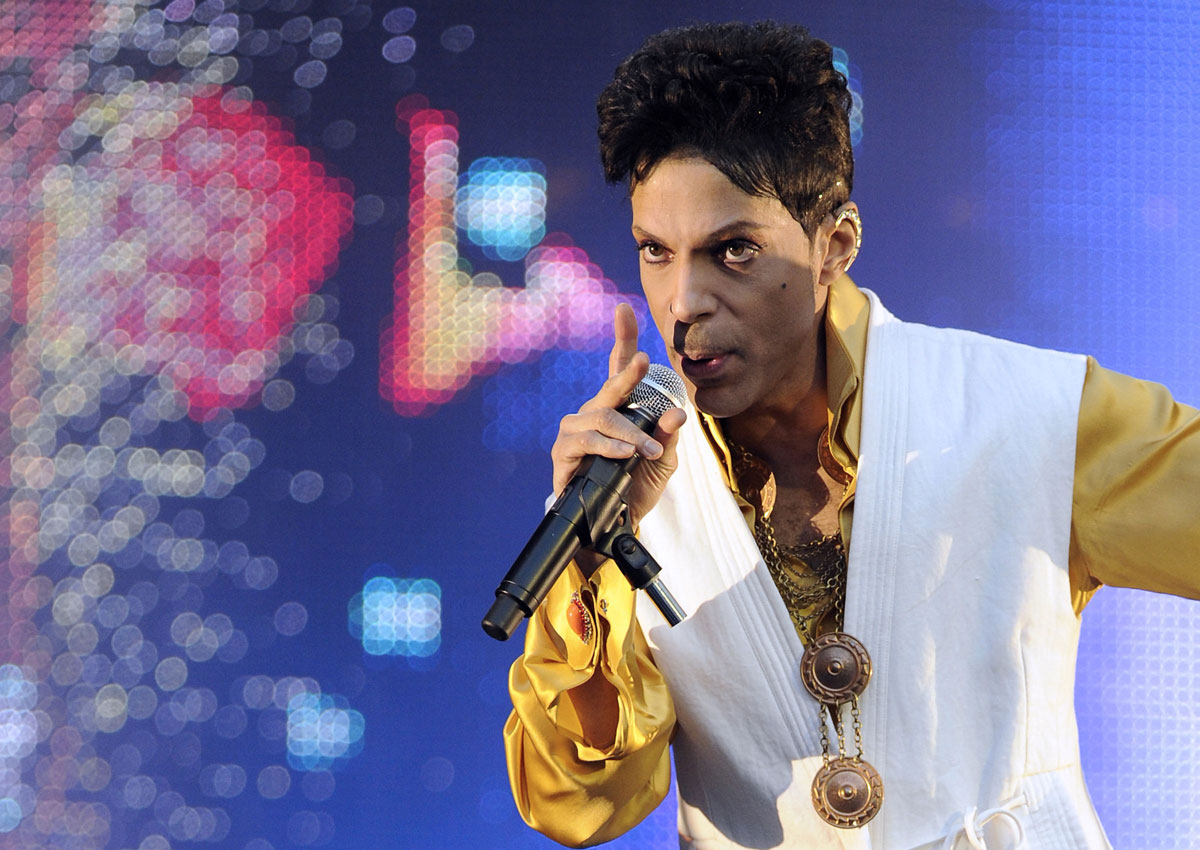Beyond his far-reaching influence on the pop landscape, Prince leaves a lasting legacy as the first star to take on the music industry in a fight for creative – and financial – freedom.
“Record contracts are just like – I’m gonna say the word – slavery,” Prince, who died at the age of 57 on Thursday, told US public radio NPR in an interview.
The superstar’s harsh words – an especially loaded comment coming from an African American – summed up his contempt for record labels and his fight for artists’ rights.
“I would tell any young artist… don’t sign,” he added.
It’s with Warner that Prince’s crossing of swords was most acrimonious, even driving him to renounce his own stage name for several years in the 1990s.
That same label had signed the precocious Kid from Minneapolis in 1977, when he was just 18 years old, keeping him on for the five years it took to bring out his first global success, “1999”.
It was also Warner that from 1985 to 1992, helped Prince financially to set up his own label, Paisley Park Records, which signed on young talents such as percussionist Sheila E and older greats such as funk legend George Clinton, and the singer Mavis Staples.
By the turn of the 1990s, however, the relationship had soured. The artist wanted to be able to release more music, more often – and felt reined in by a label reluctant to flood the market.
The falling out edged closer in 1992 – the year Prince signed a new, $100 million contract for six albums.
It was billed at the time as the most lucrative ever signed, far ahead of those for superstars Michael Jackson ($50 million) and Madonna ($60 million).
But the price to pay was high – with Warner granted ownership of the original master recordings for Prince’s entire catalogue stretching back to 1978.
The relationship declined rapidly from that point on.
In 1993, on his 35th birthday, Prince announced he was changing his name to an unpronounceable “love symbol” – leaving the media little choice but to describe him, awkwardly, as “the artist formerly known as Prince.” In a further protest at the terms of his contract, Prince performed on stage with the word “slave” on his cheek.
Prince’s rebellion caused him some harm on the business front, but most of his fans stayed faithful. In 1993, all 72,000 tickets for his concert at London’s Wembley Stadium sold out in less than an hour.
Keen to ensure its return on investment, Warner then committed what Prince viewed as an act of treason by putting out a compilation of his best songs.
At the end of 1995, Prince decided there was no going back.
“Over the course of their nearly two decade long relationship, the artist and WBR have developed irreconcilable differences,” said the artist – who ultimately recovered ownership of his back catalogue in a deal with Warner in 2014.
The North American musicians’ union AFM – to which Prince belonged – acknowledged his trailblazing role in speaking up for artists.
“We are devastated about the loss of Prince, a member of our union for over 40 years,” it said. “Prince was not only a talented and innovative musician, but also a true champion of musicians’ rights.” After the split with Warner, Prince went forwards with a new label, NPG Records, focusing on concert ticket receipts, signing occasional contracts with big labels but also using the Internet to get his work directly to the public.
But Prince’s love story with the web was short-lived.
The artist battled in recent years for videos of his performances to be taken off YouTube to protect his rights.
In particular, he denounced the rise of streaming giants such as iTunes or Spotify that provided low percentage returns to artists.
In 2010, he declared that “the Internet is completely over.” “What I meant was that the Internet was over for anyone who wants to get paid,” he later told the Guardian. “And I was right about that.” But he recently became convinced of the possibilities of streaming, releasing several albums through rap mogul Jay Z’s service Tidal, which aims to provide artists with higher royalties.
“My thing is this: the catalogue has to be protected,” he told Ebony magazine in an interview.















































